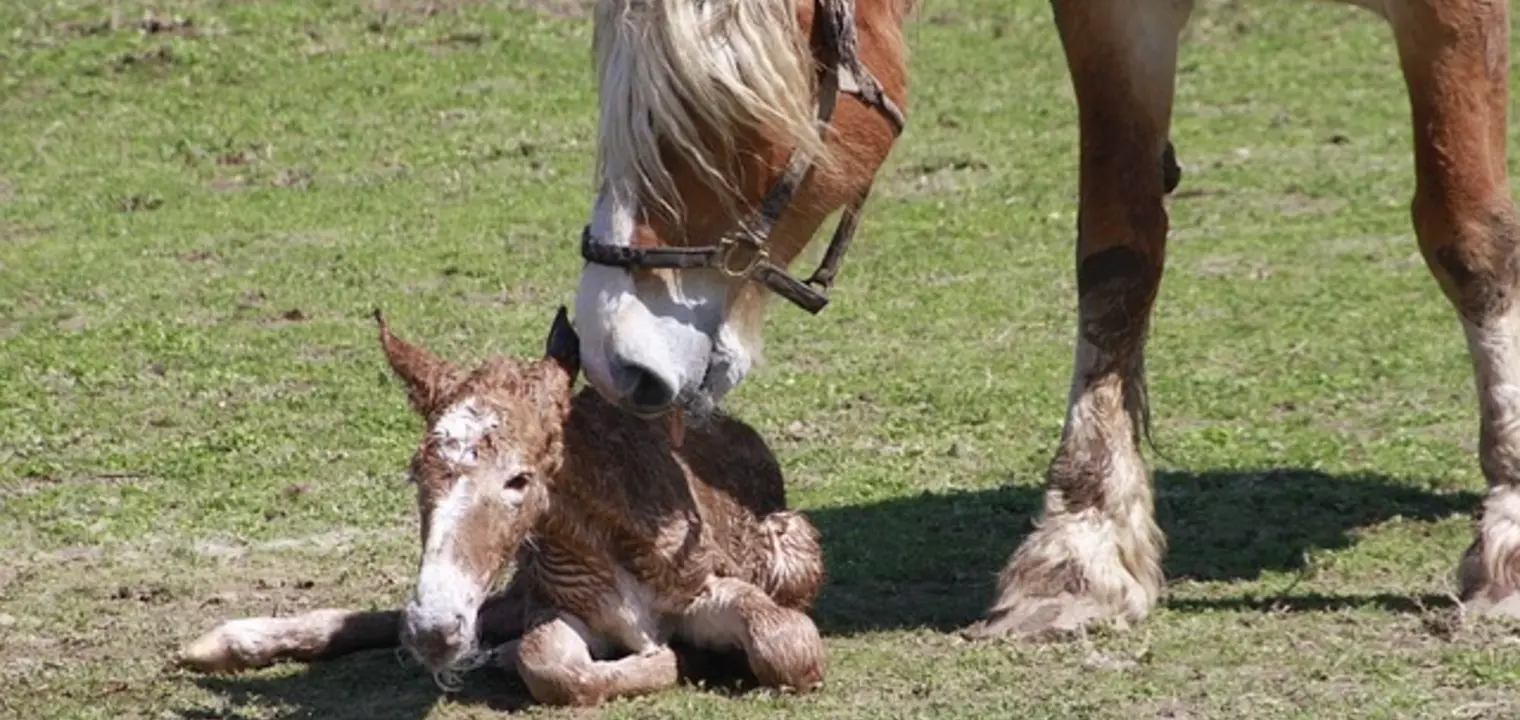Bringing new life into the world is a momentous occasion, especially when it comes to horses. The journey from conception to birth is filled with wonder and excitement. In this article, we'll explore everything you need to know about horse pregnancy, birth, and the arrival of a foal. But you may ask, what is a Foal? A foal is a young horse that has recently been born. They rely heavily on their mother for nourishment and protection during the early stages of life.
Horse Pregnancy
Horses, like many mammals, have a gestation period during which the foal develops in the mare's womb. The gestation period for horses typically lasts around 11 months, although it can vary slightly from mare to mare. This period of pregnancy is crucial for the development of the foal and requires proper care and nutrition for the health of both the mare and the unborn foal.
Foaling Process and birth
As the end of the gestation period approaches, the mare will exhibit signs of impending labour. These signs may include restlessness, sweating, and pacing. Once labour begins, the mare will go through several stages of labour, culminating in the birth of the foal. The foal is usually born hooves first, followed by the head and shoulders. The entire birthing process can take anywhere from 20 minutes to several hours, depending on various factors such as the mare's age and health.
Birth alerts with Foal Alarm
Foaling can be an exciting yet stressful time for horse owners and breeders.In these exciting times, it's crucial to ensure your mare receives ample rest in a familiar environment for a smooth foaling process. Your dedication to overseeing her birthing journey is crucial, as the initial moments are critical for both the mare and foal's health. Despite efforts to predict the timing, births can still be unpredictable, often occurring during periods of extended rest, typically at night. Even experienced mares require monitoring, as complications can arise unexpectedly. For reliable attendance during the birthing process, Birth Alarm offers an ideal solution, ensuring you're prepared for any situation. Foal alert systems are available to help monitor mares during labour and provide assistance if needed. These systems consist of cameras and sensors that alert the owner or caretaker when the mare goes into labour, allowing for timely intervention if complications arise.
We offer the folllowing Birth Alarms
Once a foal reaches a certain age, usually around one year old, it is no longer considered a foal but rather a young horse. Young horses are still developing physically and mentally, and require proper care and training to reach their full potential. During this stage of life, young horses may undergo training to become accustomed to being handled by humans and may also begin their education as future riding or working horses.
The arrival of a new foal is a joyous occasion that marks the beginning of a new life. Understanding the process of horse pregnancy and birth is essential for horse owners and breeders to ensure the health and well-being of both the mare and the foal. By providing proper care and attention during pregnancy and labour, horse owners can welcome a healthy and happy foal into the world.
FAQs About Horse Birthing and Foaling
What is a Foal? Until what age?
A foal is a young horse, typically under one year of age, that has recently been born. Foals are dependent on their mothers (mares) for nourishment through milk and for protection during the early months of life. They begin to stand and walk within hours of birth, showcasing their natural instincts and physical development. Foals are usually weaned (transitioned from milk to solid food) at around 4 to 6 months of age. During this time, they start to explore their environment, graze, and interact with other horses, learning essential social and survival skills. The term "foal" applies to both genders, but young males are specifically called colts, and young females are referred to as fillies. This stage is critical for their growth, as their bones, muscles, and social behaviors develop rapidly. Proper care, nutrition, and handling during this period are crucial to ensure they grow into healthy adult horses.
Do maiden mares foal early or late?
Maiden mares (mares that are foaling for the first time) often tend to foal slightly later than experienced broodmares. On average, horses have a gestation period of approximately 340 days (11 months), but maiden mares sometimes carry their foals a few days or even weeks longer. This delay can be due to various factors, such as their physical inexperience or differences in how their bodies adapt to pregnancy.
What is the average length of a mare's pregnancy?
A mare's pregnancy, also called gestation, typically lasts 340 days on average, which is approximately 11 months. However, the range can vary significantly. The Normal Range is between 320 to 370 days. However factors like the mare's age, health, season of conception, and whether the foal is male or female can slightly influence the gestation length.

